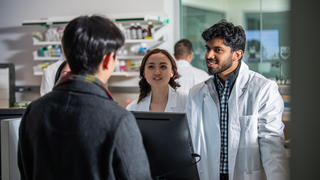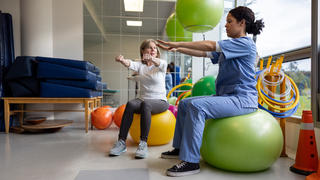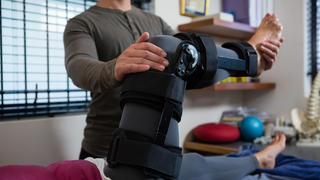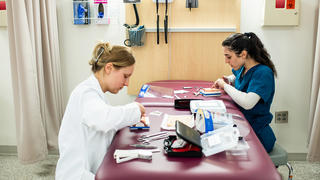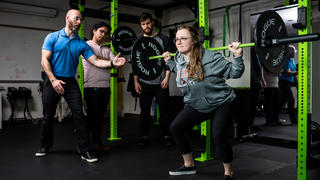Features
School of Health Professions
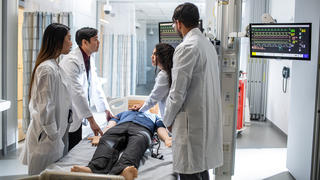
The mission of the School of Health Professions is simple: prepare future leaders, innovators and skilled practitioners in healthcare and science.
Through the skills they acquire in programs like occupational and physical therapy, physician assistant studies, health science, and pharmacy, students address pressing healthcare needs — from helping to improve cognitive function in stroke patients to delivering medications to vulnerable populations.
Students are trained using state-of-the-art equipment, honing their skills in the country’s best medical and rehabilitation centers and clinics. They not only have the opportunity to interface with healthcare organizations during their studies, but they’re also able to work collaboratively with students and faculty outside of their discipline.
“We’ve already begun developing interdisciplinary courses and experiential opportunities in collaboration with the School of Education and Human Development,” says Dean Sinclair Smith, ScD. “There are countless opportunities for research, teaching and service across Saint Joseph’s, and I’m excited for the possibilities.”
Key Programs
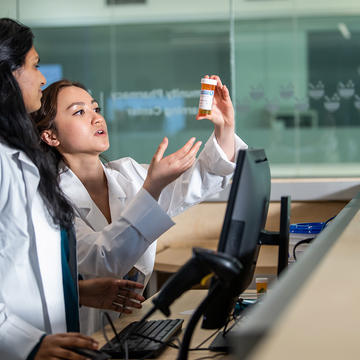
Fast Facts
- The School of Health Professions provides the foundation for some of U.S. News & World Report’s 100 Best Jobs of 2022, including physician assistant (No. 3), physical therapist (No. 28) and occupational therapist (No. 31).
- Top employers of School of Health Professions graduates include GlaxoSmithKline, Hospital of the University of Pennsylvania, Johnson & Johnson, Merck and MossRehab.
- Home to the Philadelphia College of Pharmacy — North America’s first college of pharmacy — training leaders in pharmacy practice, research and education.
- Featuring one of the top 50 pharmacy programs in the United States, ranked by U.S. News & World Report.
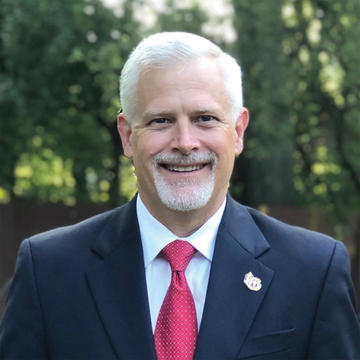
Sinclair Smith, ScD
Sinclair Smith, ScD, brings more than 25 years of experience in higher education leadership, teaching and research to his role as dean of SJU’s School of Health Professions. Most recently, he was dean of the University of the Sciences’ Samson College of Health Sciences.
With a doctor of science in applied anatomy and physiology, Smith has published more than 100 peer-reviewed articles, presentations and book chapters, and mentored over 50 graduate student research projects.
“Mentoring the next generation of healthcare professionals has been a highlight of my career,” he says. “I am so impressed by their adeptness and drive to improve society.”
Smith and Associate Dean Carol Maritz, PhD, have also overseen the growth of an on-campus, pro-bono clinic providing free physical and occupational therapy services to the West Philadelphia community.
“The clinic allows students to work directly with patients, grow their skill sets and serve the community,” Smith says. “We hope to incorporate pharmacy, physician assistant studies and behavioral health in the future.”
